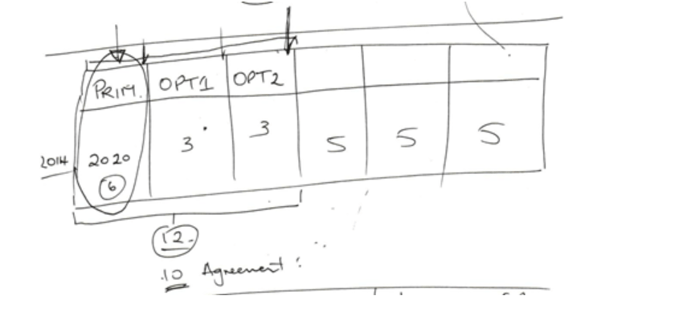Misleading or Deceptive Conduct
Misleading or deceptive conduct is the most commonly reported complaint by small business to the ACCC. While these complaints will not all relate to...

Following on from our recent article about misleading or deceptive conduct, we take a look at the case of Lanhai Pty Ltd v 7 Eleven Stores Pty Ltd [2022] VSC 132, which involves allegations of misleading and deceptive conduct about the term of the franchise agreement.
For a number of reasons, it is preferable if the term of the franchise agreement and the term of the lease (if the franchise is site based) coincide. If the term of the lease ends before the term of the franchise agreement ends, unless the franchisee is able to relocate the franchise business, the franchise agreement will effectively come to an end.
In Lanhai Pty Ltd v 7 Eleven Stores Pty Ltd a dispute arose between the franchisor (7-Eleven) and the franchisee (Lanhai) about whether the franchisor had explained to the franchisee that the term of the franchise agreement (in this case 10 years) was subject to 7-Eleven renewing the lease.
The term of the lease and the term of the franchise agreement did not coincide, so the initial term of the lease expired almost 4 years prior to the expiry of the "term" of the franchise agreement.
Prior to the entry into the franchise agreement, the directors of Lanhai were provided with an information brochure from 7-Eleven which stated:
The typical term of the 7-Eleven Store Agreement is 10 years, unless limited by an earlier expiry of the property lease. All rights and obligations of 7-Eleven and the franchisee are set out in the Store Agreement.
After receipt of the information brochure, as part of the purchase process, the directors of Lanhai attended a meeting with representatives of 7-Eleven. At that meeting the representatives of 7-Eleven explained to the directors of Lanhai how a lease of a franchise site may work. However, the example provided by 7-Eleven was one where the term of the lease (including the renewal terms) was longer than the term of the franchise agreement. A copy of the handwritten note made at the meeting is set out below.

Subsequently, the directors of Lanhai were provided with two separate Franchise Opportunities Documents (one in June 2014 and one in August 2014). The Franchise Opportunities Document provided in August 2014, indicated that the Heathmont site had a lease term of "4/7/21 + 1x5 Yr Opt" and a franchise agreement term of "10 years". There was an asterisk placed after the words "Lease Term" to an explanatory note which stated:
"Options are not guaranteed and lease extensions will be decided on a case by case basis at the sole discretion of 7-Eleven. Note: Franchise Agreements continue until; the earlier of 1)the date on which the primary (current) term of the Lease expires, or 2) the expiration of any further term of the Lease (but only if the option to extend is exercised by 7-Eleven during the term of the agreement) or 3)10 years after the effective date".
Relevantly, of the 11 stores listed in the Franchise Opportunities Document, only 3 were noted as having a franchise agreement term of 10 years, the rest of the respective franchise agreement terms were noted as being "as per lease".
In June 2015, Lanhai entered into a franchise agreement for Heathmont. The franchise agreement contained a term acknowledging that the franchisor, 7-Eleven had no obligation to renew or exercise any option to extend the lease. The franchise agreement further provided that the agreement would terminate on the earlier of, amongst other things, the expiration of the primary term of the lease, or 10 years, whichever was earlier. The time remaining on the lease (excluding the option) was 6 years and one month.
In April 2021, 7-Eleven advised Lanhai that it would not be taking up any further options under the lease, that the lease would expire on 4 July 2021 and that the franchise business would be closed with effect from 17 June 2021.
Lanhai commenced proceedings against 7-Eleven alleging that 7-Eleven had engaged in misleading and deceptive conduct by representing to Lanhai that the term of the franchise agreement was 10 years.
The Court found that 7-Eleven had engaged in misleading and deceptive conduct in that the conduct had "a sufficient tendency to lead a person exposed to the conduct into error (that is, to form an erroneous assumption or conclusion about some fact or matter". The Court went on to say that the erroneous assumption was that the contractual entitlement under the franchise agreement was to a term of 10 years, rather than the earlier of:
In concluding that 7-Eleven had engaged in misleading and deceptive conduct the Court reasoned:
While the Court considered the effect of the Explanatory Note in the Franchise Opportunities Document the Court found that the Explanatory Note did not erase the effect of the misleading representation. The Court noted that the asterisk was placed after the words "Lease Term" and not after the words "Franchise Agreement Term". The Court also accepted that the Explanatory Note was not brought to the attention of the franchisees.
While the specific circumstances of this case are obviously important in the Court's final decision, there are lessons to be considered and addressed when leases and franchise agreements have differing end dates.
Disclaimer
The information in this article is general in nature and is not intended to address the circumstances of any person or other entity. Although we do our best to provide timely and accurate information, we do not guarantee that the information in this article is accurate or that it will continue to be accurate in the future.

Misleading or deceptive conduct is the most commonly reported complaint by small business to the ACCC. While these complaints will not all relate to...

In today’s business world, the exchange of sensitive information is a common and often necessary practice. Whether it’s during negotiations for the...

I have been involved in franchising businesses since the early 1980's. At that time, franchising as a business growth strategy in Australia was in...